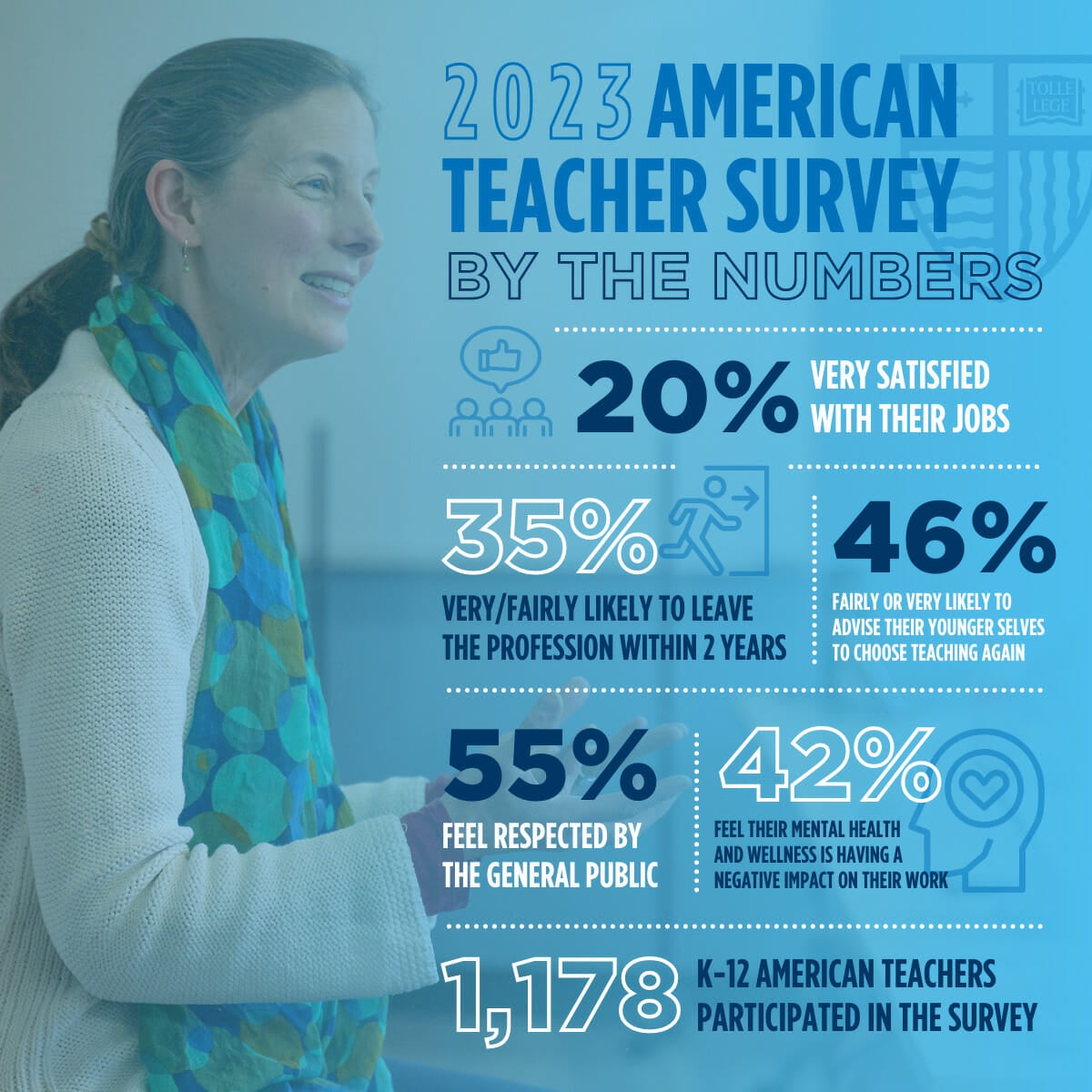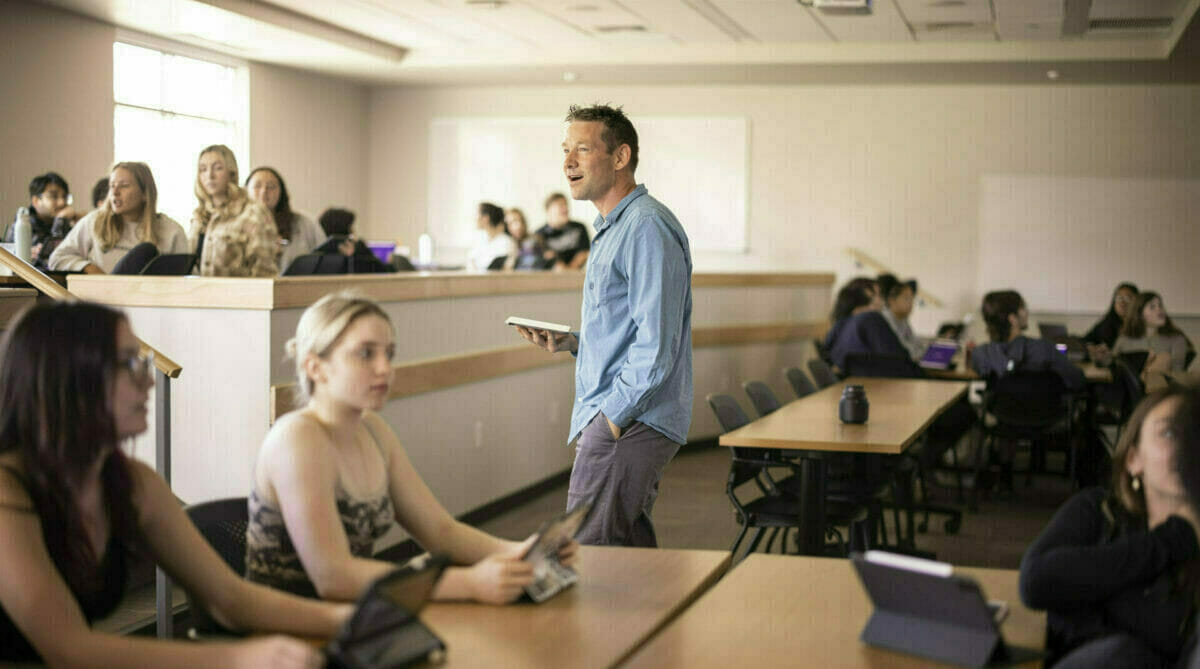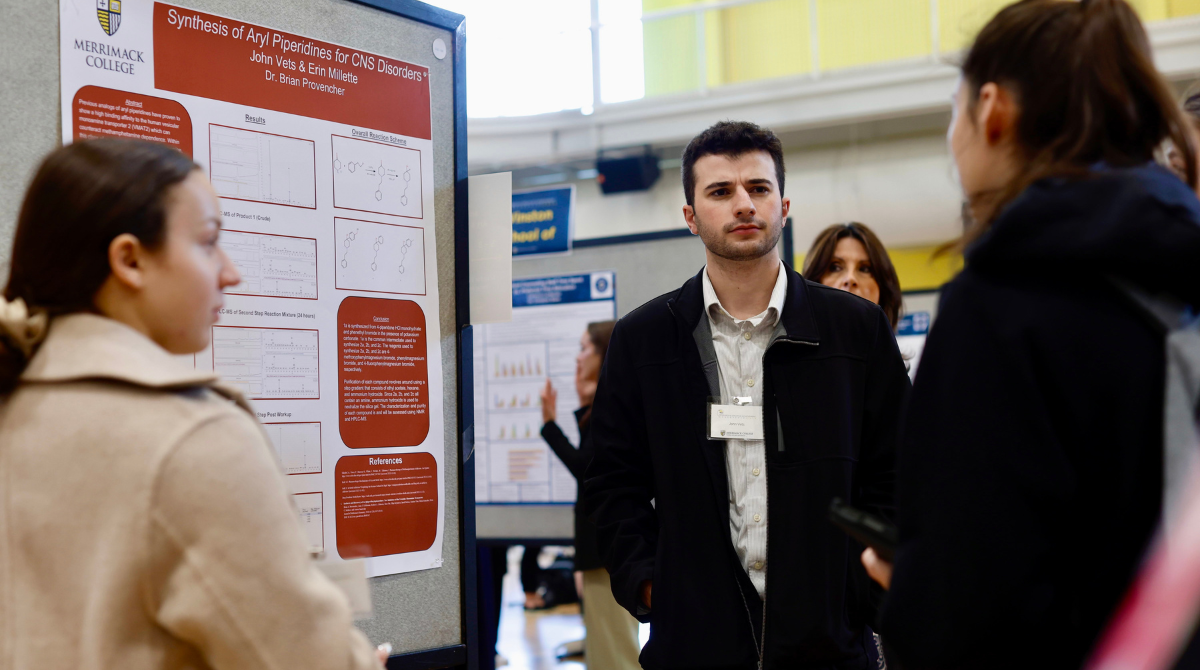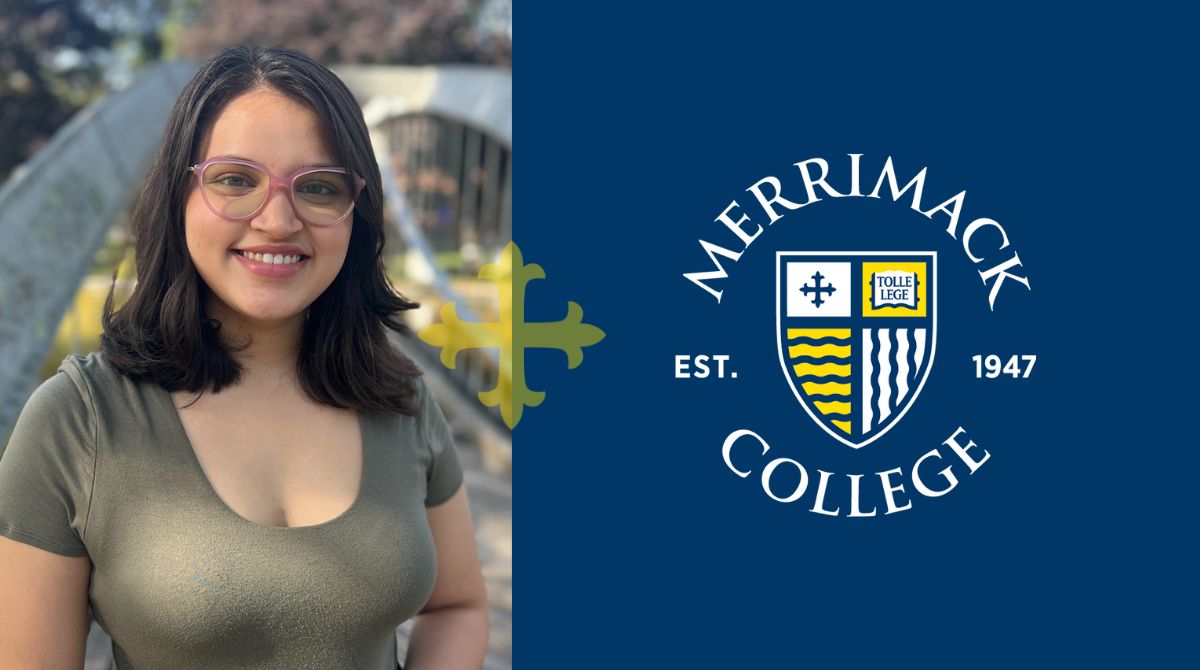Merrimack College and EdWeek, an independent news organization that covers K–12 education, have partnered again to survey the mindset and morale of public school teachers across the country.
This year was the second consecutive year Merrimack commissioned the survey, which was administered by the EdWeek Research Center. The survey found that another year beyond the COVID-19 pandemic, morale among K-12 teachers is on the rise, but critical support is still very much needed.
Among the more than 1,100 teachers surveyed, the number who reported they are very satisfied with their jobs nearly doubled to 20 percent in the past year, while similarly, the percentage of teachers who said they were likely or fairly likely to leave the profession in the next two years dropped from 44 percent to 35 percent.
“I think in part we are seeing a little bit of a rebound beyond the pandemic,” Deborah Margolis, dean of the Winston School of Education and Social Policy, said during a webinar about the survey. “So while teachers are still under extraordinary stress and living through the remnants of the pandemic, we are at least seeing things move in the right direction.”
However, nearly 45 percent of teachers surveyed expressed regret about entering the profession, and that they would be fairly likely or very likely to tell their younger selves to pursue a different profession. This year’s survey also featured questions that examined potential health, wellness and leadership-related solutions to the stressors highlighted in the 2022 survey results.
Among those stressors was public perception of teachers, particularly following the pandemic. About 55 percent of respondents to the 2023 survey said the general public respects them and sees them as professionals, which is an improvement over 2022 when only 46 percent said the same. The mental health of both teachers and students continues to impact school, the survey found. Forty-two percent of teachers say their own mental health and wellness are having a negative impact at school. More than half say the same of their students.
“We have probably the most impact in our pre-service teacher programs as we teach undergraduates and graduates as they move into the field,” Margolis said. “We are working very hard to have them understand they need to take care of themselves and that wellness is very important.”
Merrimack College and the Winston School of Education and Social Policy is quickly becoming a leader in not only preparing future generations of educators but continuing to support teachers’ confidence and success once they enter the workforce. The Merrimack Institute for New Teacher Support (MINTS) provides a community for new and early teachers currently in the field to receive mentorship, professional development, resources and symposiums.
Through that programming and initiatives, MINTS aims to promote methods and techniques for new teachers to reduce stress, manage their classrooms and keep themselves and students motivated, as well as better under the responsibilities of teaching and adapting to the culture of the education profession.
Russell Olwell, associate dean of the Winston School of Education and Social Policy, noted during the webinar that the Winston School is making changes to its administrator preparation program, and implementing assignments that focus on empathetic listening and understanding.
“We are teaching people how to explicitly listen to others and the value and importance of that,” Olwell said. “This came out of diversity, equity and inclusion work in the department to better understand the perspectives of people who come from different backgrounds.”
The 2023 survey results and their implications have been highlighted by several media outlets including the Atlanta Journal-Constitution, Yahoo Finance and District Administration Magazine.
This is the second year Merrimack College and the Winston School of Education and Social Policy have commissioned the national teacher survey with the EdWeek Research Center. The survey was administered in January 2023 to public school teachers. The EdWeek Research Center is the independent, nonprofit, nonpartisan research arm of Editorial Projects of Education (EPE), publisher of Education Week and EdWeek Market Brief.






